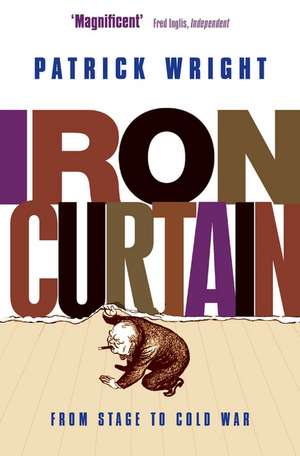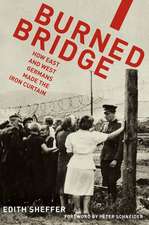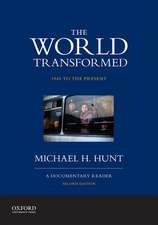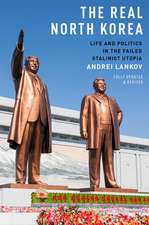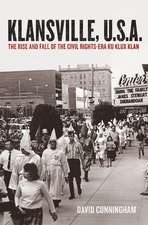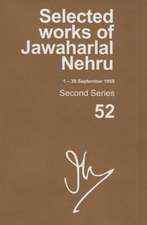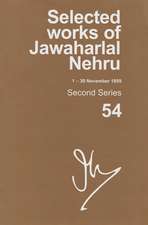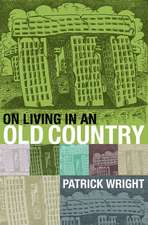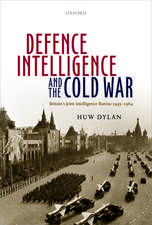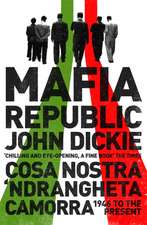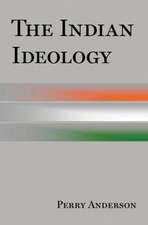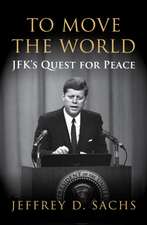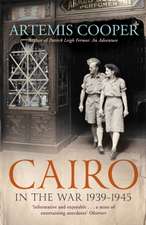Iron Curtain: From Stage to Cold War
Patrick Wrighten Limba Engleză Paperback – 29 oct 2009
Preț: 239.56 lei
Preț vechi: 265.72 lei
-10% Nou
Puncte Express: 359
Preț estimativ în valută:
45.85€ • 47.69$ • 37.85£
45.85€ • 47.69$ • 37.85£
Carte tipărită la comandă
Livrare economică 03-09 aprilie
Preluare comenzi: 021 569.72.76
Specificații
ISBN-13: 9780199239689
ISBN-10: 0199239681
Pagini: 540
Ilustrații: 48 halftone plates, 5 cartoons
Dimensiuni: 129 x 195 x 23 mm
Greutate: 0.41 kg
Editura: OUP OXFORD
Colecția OUP Oxford
Locul publicării:Oxford, United Kingdom
ISBN-10: 0199239681
Pagini: 540
Ilustrații: 48 halftone plates, 5 cartoons
Dimensiuni: 129 x 195 x 23 mm
Greutate: 0.41 kg
Editura: OUP OXFORD
Colecția OUP Oxford
Locul publicării:Oxford, United Kingdom
Recenzii
An insightful book about a formidable metaphor we thought we knew so well.
Very well written, interesting, and full of stimulating digressions.
Magnificent
Wright's style carries the reader into hearfelt sympathy with one personality or episode after another.
It is insightful, anecdotal and episodic.
Superbly written... An exhilarating journey which captivates the reader's attention from beginning to end.
Wright is a witty and imaginative writer.
A profoundly moral work...fine work of cultural history
I have read it from cover to cover, and have enjoyed every page
Sprightly and readable... the great strength of Wright's quietly inspiring book is that it hums with contemporary relevance
...stimulating, amusing... fascinating adventure ride of a book.
A work of impressive scholarship that adds much to our understanding of the roots of cold war rhetoric and attitudes
A work of wit, style and waggish erudition. I was informed and delighted by its originality.
intriguing anecdotes
Very well written, interesting, and full of stimulating digressions.
Magnificent
Wright's style carries the reader into hearfelt sympathy with one personality or episode after another.
It is insightful, anecdotal and episodic.
Superbly written... An exhilarating journey which captivates the reader's attention from beginning to end.
Wright is a witty and imaginative writer.
A profoundly moral work...fine work of cultural history
I have read it from cover to cover, and have enjoyed every page
Sprightly and readable... the great strength of Wright's quietly inspiring book is that it hums with contemporary relevance
...stimulating, amusing... fascinating adventure ride of a book.
A work of impressive scholarship that adds much to our understanding of the roots of cold war rhetoric and attitudes
A work of wit, style and waggish erudition. I was informed and delighted by its originality.
intriguing anecdotes
Notă biografică
Patrick Wright is a writer with an interest in the cultural dimensions of modern life. He is the author of a number of highly acclaimed best-selling history books, including The Village that Died for England (1995) and Tank: the Progress of a Monstrous War Machine (2000), described by Simon Schama as 'a tour de force.' He has written for many magazines and newspapers, including the London Review of Books, the Guardian, the Washington Post, the Independent, and the Observer, and has made numerous documentaries on cultural themes for both BBC Radio 3 and 4. His television work includes The River, a four-part BBC2 series on the Thames. He is also a Professor at the Institute for Cultural Analysis at Nottingham Trent University, and a fellow of the London Consortium.
